Last Updated on December 16, 2022 by Kayla
- What can you drink while fasting?
- Clean vs dirty intermittent fasting
- Acceptable drinks for dirty intermittent fasting
- Drinks to avoid during a fast
- More about beverages and fasting
- Does alcohol break a fast?
- Does apple cider vinegar break a fast?
- Does Bulletproof coffee break a fast?
- Do BCAAs break a fast?
- Does cinnamon break a fast?
- Does collagen break a fast?
- Does diet soda break a fast?
- Does honey break a fast?
- Does lemon water break a fast?
- Does MCT oil break a fast?
- Does stevia break a fast?
- Does tea break a fast?
- Which type of intermittent fasting is right for you?
What can you drink while fasting?
If you are fasting, the question of what and when to drink is a common one. There isn’t an easy answer because there are many different types of intermittent fasting. This article will help you understand which liquids break your fast so that you can plan accordingly.
First, let me begin by defining what it means to “break a fast”. Technically, a rise in insulin breaks a fast, however, some food and drinks will have a greater impact on insulin than others.
Calorie-free or low-calorie food and drinks, for example, can break a fast. Artificial sweeteners mimic the sweet taste of real sugar so well that our body assumes that carbohydrate (AKA sugar) is on the way, and our pancreas releases insulin as a result {read more about insulin response and weight gain here}.
While I would rather someone drink a Diet Coke over regular Coca-Cola, zero-calorie sweeteners are the lesser of two evils. I recommend avoiding anything sweet outside of your eating window whether it contains calories or not.
Everyone’s metabolism is unique though, and insulin response/sensitivity varies from person to person. Feel free to experiment and see what you are able to get away with. Try having your diet soda or artificially sweetened drinks, and if your weight loss progress stops, try going without!
Clean vs dirty intermittent fasting
Some people fast “clean” and others practice “dirty” intermittent fasting. While clean fasters may have only plain water, black coffee, or unsweetened tea during their fast, dirty fasters might enjoy cream in their coffee, bone broth, or even Bulletproof coffee.
Intake of calories from fat and electrolytes during a dirty fast can help make a fast more comfortable by limiting hunger and helping you feel more energized.
Dirty intermittent fasting is effective when fasting for weight loss, however other benefits like gut rest and autophagy {a fancy term for cellular cleanup in the body} are diminished.
Personally, I am a fan of dirty intermittent fasting for weight management because a splash of half & half in my coffee and the occasional Bulletproof coffee have made a world of difference in the comfortability of my fasts.
Fasting should be flexible and not miserable. The best intermittent fasting protocol is the one that you stick to!
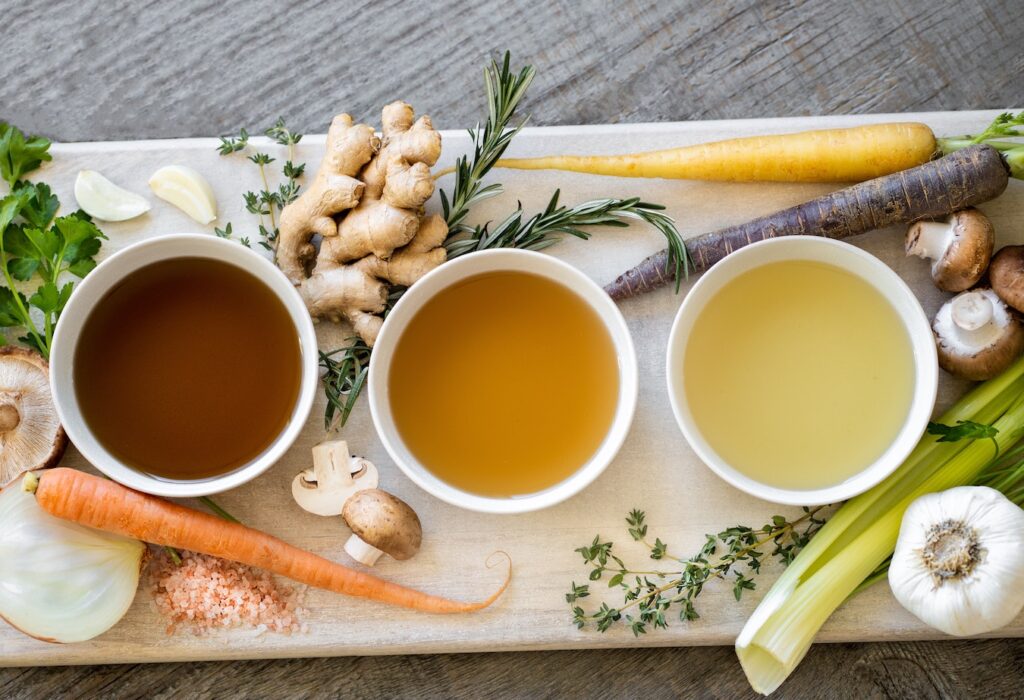
Acceptable drinks for dirty intermittent fasting
The following list of beverages is not exhaustive, but it will offer some solid options to consider when planning your next dirty intermittent fasting protocol:
- water {including sparkling mineral water & lemon water}
- coffee {with or without a splash of half & half, heavy cream and/or cinnamon}
- Bulletproof coffee
- unsweetened iced tea {with lemon}
- bone broth {homemade or store bought}
- tea {plain or with a splash of heavy cream and/or stevia}
- apple cider vinegar {diluted in water, no honey!}
While artificial, non-nutritive sweeteners provide little to no calories, I recommend avoiding them during a fast – even if you are dirty fasting. Some people find that artificial sweeteners increase cravings for sweets making fasting more difficult.
If you choose to drink beverages with artificial sweeteners, have them during your eating window to reap the best weight loss results.
Drinks to avoid during a fast
Whether you practice dirty or clean fasting, it’s important to know what you can and cannot drink. Avoid beverages that are sweet and/or stimulate an insulin response. Be sure to review labels on store-bought goods as they are often loaded with added sugars.
Drinks to avoid during a fast include:
- Diet soda
- Regular soda
- Energy drinks
- Beverages sweetened with sugar, honey, agave, etc.
- Milk {cow’s milk, almond milk, oat milk, etc}
- Protein shakes
- Juice {including green juices}
- Kombucha
This list is not all-inclusive. There are no set rules on what breaks a fast. Some sources claim that 50-100 calories or less are acceptable for dirty fasting. In my opinion, it all comes down to insulin response – not calories. If you can enjoy a coffee full of healthy, blood sugar-friendly fats like grass-fed butter and MCT oil – go for it!
More about beverages and fasting
It’s important to remember that there are many different types of intermittent fasting so what one person can use successfully during a fast might be off-limits for someone else. Furthermore, everyone’s metabolism is unique, so some people may be able to fast “dirtier” than others without it impacting their weight loss progress.
Intermittent fasting is a lifestyle. There is no one-size-fits-all protocol. It takes trial and error to find a regimen that works best for you. Don’t be afraid to experiment with clean and dirty fasting in order to find a routine that suits you best.
Below is my opinion/reasoning for whether or not a beverage breaks a fast. As a registered dietitian, I considered the macronutrient composition of each drink, how these nutrients are digested, their impact on blood sugar and insulin response, and overall personal experience and clinical intuition.
Please know that I fully support dirty intermittent fasting, as I don’t believe fasting should be miserable. Fasting should be something that provides physical and mental benefits, and flexible intermittent fasting is key.
It takes time to dial in what regimen works best for you, so hang in there. Have an open mind and don’t compare your results to someone else.
Does alcohol break a fast?
Alcohol is the fourth macronutrient and is often disregarded in comparison to the three main macronutrients: protein, fat, and carbohydrate. The structure of alcohol {i.e. ethanol} most closely resembles a carbohydrate, however, the way it’s absorbed in the body mirrors fat metabolism.
Alcohol comes in many forms including wine, beer, and distilled spirits. While alcohol itself doesn’t drastically impact blood glucose levels and therefore doesn’t raise insulin significantly, the type of drink and mixers used can. For example, the gin in a classic gin and tonic will have a much lesser effect on insulin compared to tonic water which is sweetened.
Additionally, drinks like beer carry a heavier carbohydrate load which can affect blood glucose more rapidly. Sweet wines and sugary mixers should also be avoided.
The most fast-friendly alcoholic beverages include:
- distilled spirits {eg. vodka, gin, whiskey, tequila, etc}
- dry wines {eg. Reds: Pinot Noir, Cabernet Sauvignon, or Merlot; Whites: Pinot Grigio, Chardonnay, or Sauvignon Blanc; Sparkling: Brut Champagne, Prosecco}
Even though alcohol does not impact your blood glucose as dramatically as carbohydrates {in fact, alcohol can drive blood glucose down which is why we crave carby foods}, it alters our decision-making – especially when it comes to food.
Further, the day after drinking results in less stable blood sugars which can make adhering to your fasting routine more difficult. You will likely experience increased hunger and cravings – not to mention the hangover!
In summary, yes, alcohol breaks a fast. While some options are better than others, make sure to keep your cocktails within your eating window. Moderation is key, and if your weight loss stalls, try limiting/eliminating alcohol until you achieve your desired results.
Clean fasting: Avoid
Dirty fasting: Avoid
Does apple cider vinegar break a fast?
Bitter tastes such as coffee, tea, and vinegar generally produce little to no insulin response. Furthermore, vinegar has a positive impact on blood sugar and provides very few calories. Be sure not to follow popular trends such as apple cider vinegar with honey. The honey is sure to spike your blood sugar and insulin. Opt for plain or diluted ACV.
Clean fasting: Avoid
Dirty fasting: Allowed
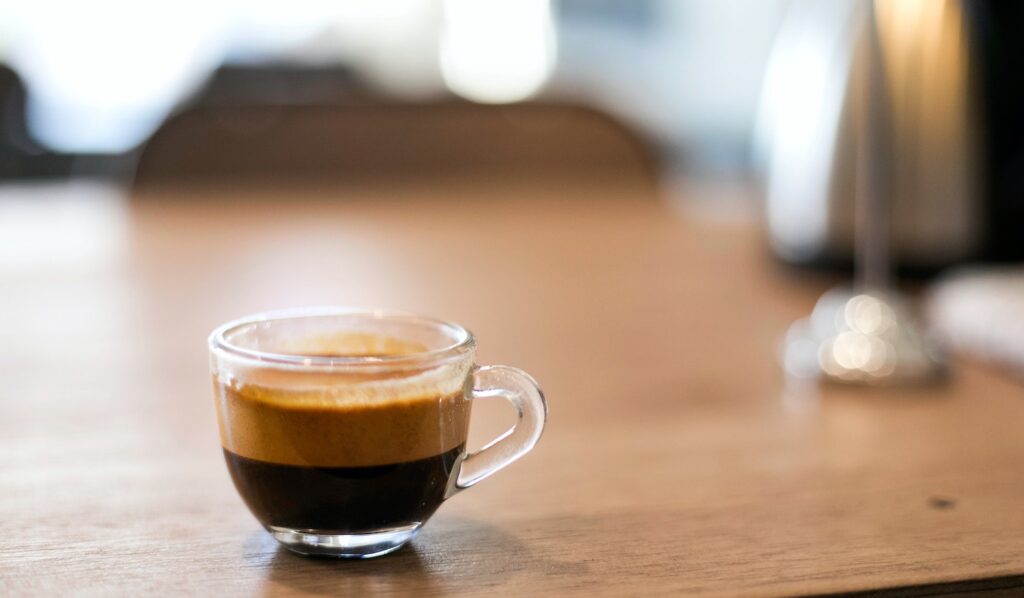
Does Bulletproof coffee break a fast?
Bulletproof coffee consists of coffee, grass-fed butter, and MCT oil blended together to make a frothy, filling beverage. It’s a popular drink in the intermittent fasting community because it contains long and short-chain fatty acids which can help keep you feeling energized and minimize hunger while fasting.
While technically the butter and MCT oil contain calories and break a fast, the impact on blood sugar levels, and subsequently insulin, is minimal. If you’re looking for a drink to help make your fast more comfortable, give it a try. You may be surprised by how well your body responds.
Clean fasting: Avoid
Dirty fasting: Allowed
Do BCAAs break a fast?
Branched-chain amino acids {BCAAs} are three essential amino acids that the body cannot produce on its own: leucine, isoleucine, and valine. BCAAs may enhance protein synthesis and help with muscle metabolism during exercise and other strenuous activities.
Most BCAA supplements are flavored with artificial sweeteners such as sucralose. Despite providing little to no calories, artificial sweeteners can activate an insulin response which defeats the purpose of intermittent fasting.
If you choose to sip on BCAAs during a workout or fast, opt for unsweetened varieties in order to reap maximum benefits from your fast.
Clean fasting: Avoid
Dirty fasting: Allowed {if unsweetened}
Does cinnamon break a fast?
Cinnamon provides very few calories and therefore does not break a fast. Especially when you consider the small amount or sprinkle you might add to coffee or tea; it’s negligible. For clean fasters, however, there are very few exceptions, so keep it clean and stick to plain water, coffee, and tea.
Clean fasting: Avoid
Dirty fasting: Allowed
Does collagen break a fast?
Yes, collagen powder breaks a fast. Collagen is a form of protein that can stimulate an insulin response. Even though many collagen supplements consist of collagen peptides which are smaller strands of proteins, activation of the pancreas is required for enzyme release and activation.
Clean fasting: Avoid
Dirty fasting: Avoid
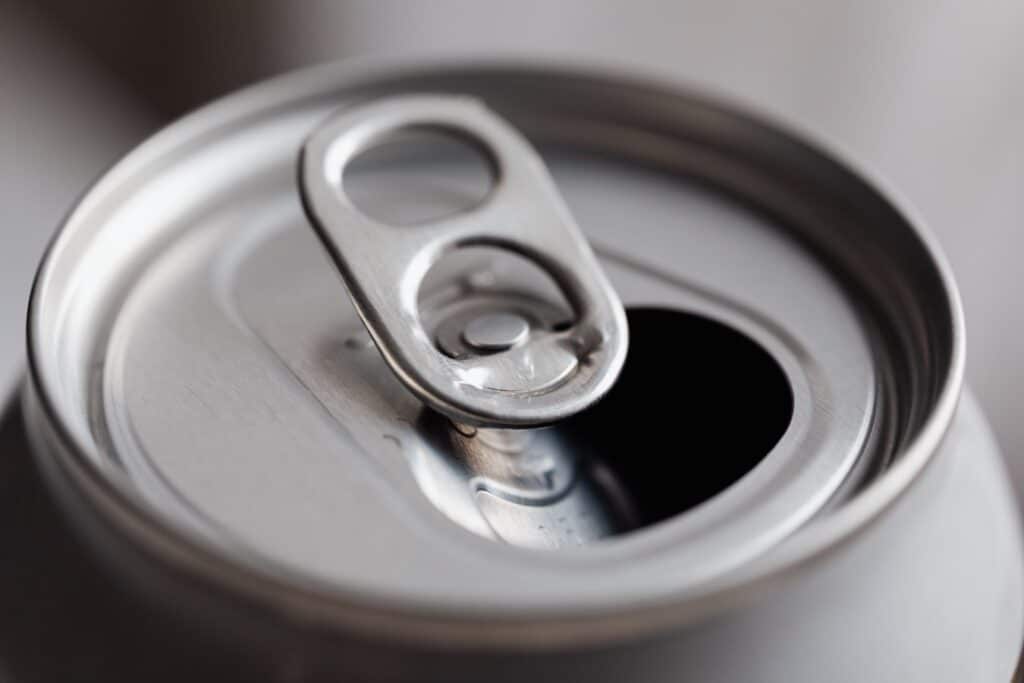
Does diet soda break a fast?
Diet sodas contain artificial sweeteners which can stimulate an insulin response even though calories are not consumed. Insulin response varies from sweetener to sweetener. For example, sucralose stimulates a larger insulin response compared to stevia which has little to no impact on insulin release.
Clean fasting: Avoid
Dirty fasting: Avoid
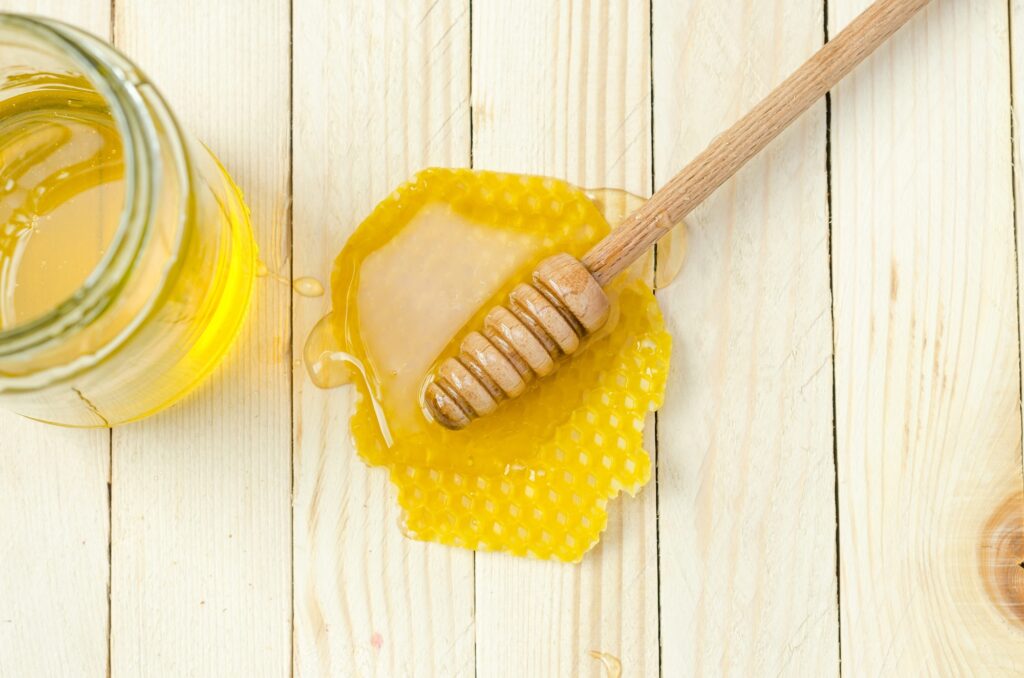
Does honey break a fast?
Honey absolutely, 100% breaks a fast. Whether you are a dirty or clean faster, avoid honey as it stimulates an insulin response. Furthermore, honey is high in fructose which can be fat-promoting.
Clean fasting: Avoid
Dirty fasting: Avoid
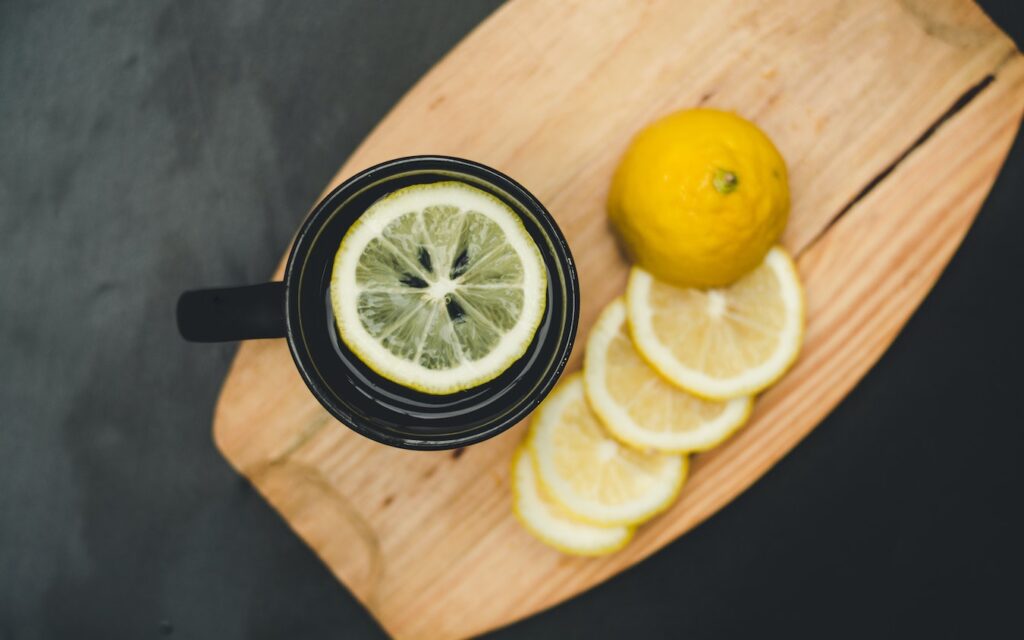
Does lemon water break a fast?
A slice or two of lemon with your water can be a luxury during a fast. Choose freshly squeezed lemon juice and be mindful of how much you use in order to reap the most from your fast. Avoid pre-packaged lemon juices which may include preservatives such as citric acid. Citric acid occurs naturally in citrus fruits and can also be artificially manufactured.
Clean fasting: Avoid
Dirty fasting: Allowed
Does MCT oil break a fast?
MCT oil can be absorbed with little to no stimulation of insulin or the digestive tract. It’s a staple ingredient in Bulletproof coffee which is allowed on fast-mimicking diets or dirty intermittent fasting.
Clean fasting: Avoid
Dirty fasting: Allowed
Does stevia break a fast?
Compared to other non-calorie sweeteners such as sucralose, stevia has a lesser impact on insulin response making it the preferred choice if you are looking to sweeten your coffee or tea during a fast.
For best results, I would recommend avoiding any non-calorie sweeteners during a fast however stevia is the lesser of two evils in this case. You can always try eliminating it down the road if your weight loss progress halts.
Clean fasting: Avoid
Dirty fasting: Allowed
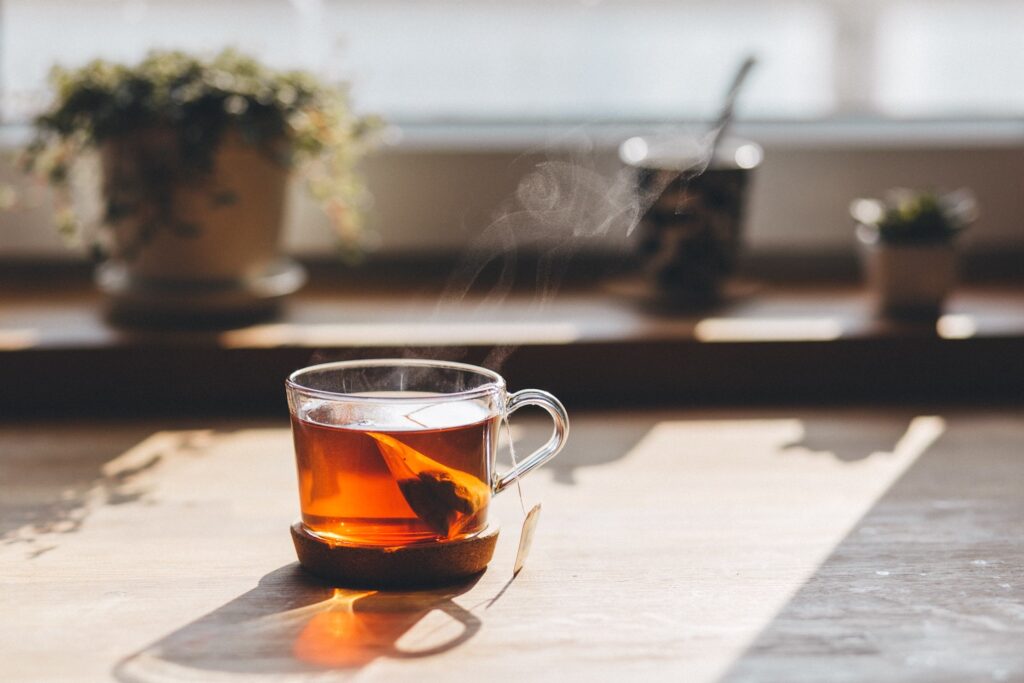
Does tea break a fast?
Tea does not break a fast and is one of the preferred beverages during a fast. Some people find that tea or a warm beverage can help manage hunger. Adding a slice of lemon is allowed, however, be sure to avoid insulin-stimulating sweeteners which are often added to tea such as sugar and honey.
Clean fasting: Allowed
Dirty fasting: Allowed
Which type of intermittent fasting is right for you?
In conclusion, drinks that break a fast can be tricky to navigate. It is important to keep your goals in mind and think about what you want from the experience. There are benefits to intermittent fasting that reach beyond weight loss. Whether you choose to fast “clean” or “dirty” depends on what you hope to achieve.
If your primary goal is weight loss, you are able to experiment with a larger variety of drinks. If you choose to fast for reasons such as gut rest or autophagy {a fancy term for cellular clean up}, I recommend sticking to plain water, coffee, and tea for best results.
Whatever your goal(s), there are many types of intermittent fasting. There is no one-size-fits-all protocol, and it takes time to experiment with what eating window and beverage variety help you fast comfortably while reaping benefits like weight loss and increased mental focus.
Experiment. See what works best for you. Put on your blinders and don’t compare your intermittent fasting experience to everyone else!
Fast comfortably, my friends. Comment below with your questions on what beverages break a fast!
Yours truly,
Helping women after bariatric surgery lose weight without eating “perfect.” Learn how to balance blood sugar & optimize your “tool” today! Apply to learn more!
This post may contain affiliate links. When you make a purchase through any of the links, there is no additional cost to you, and I may earn a small (and very appreciated) commission. Thank you for your support!

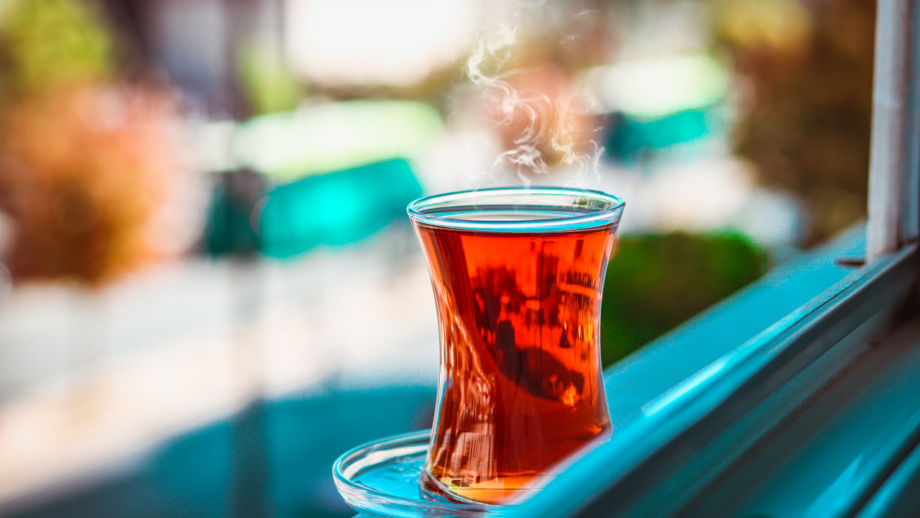
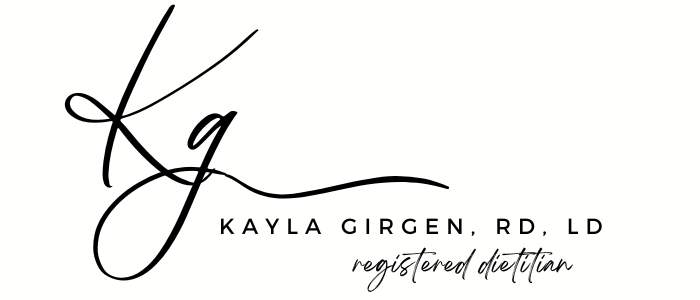
I am on 16:8 intermittent fasting but I am type 2 diabetic I am drinking turmeric with lemon tea in the before morning I was wondering whether I can drink this before bed time is Ok for this fasting
Hi Constance! So long as the lemon tea is unsweetened, I think it would be appropriate before bed and wouldn’t impact your blood sugar or insulin response.
I’m glad I found this article. It helped me immensely. I started this way of life three weeks ago. I joined several groups but I found there were too many people that were unkind and not ready to help and support. I fast from 4pm until 2pm the next day. I drink decaf coffee and tea already. I haven’t had a soda in over 11 years and I don’t miss it at all. I do like to have something to drink with flavor in it in the hours before I go to bed so I drink tea with lemon. I was told that was a no no. Thank you for clearing that up for me.
My pleasure! I’m glad you found the article helpful! Thanks for stopping by! 😊
Thank you so much for this article!!!!! I am new to fasting and was confused and overwhelmed by the information out there. I have been fasting for weight loss (16/8) with very good results. I felt so guilty using diet soda and coffee with cream and artificial sweeteners! There is so much about how to do this the “right” way, but I don’t want to drink black coffee, I’ll be miserable. Now I have information that I can use and know that as long as I see results I’m ok. I can work little by little to improve my nutrition. This really helped me thank you!
Hi Annette! I am glad you found the article helpful. There is no “right” way to fast except for finding what works best for YOU! It should be empowering, not miserable. Please message me if you have any other questions about intermittent fasting. I am happy to help! 💙 Kayla
Am so thankful for this information just joined intermittent fasting (20/4)a few weeks back and I have been taking lemon, ginger and garlic smoothie (homemade) in plenty …. Will I still receive the desired results?
What other ingredients besides lemon, ginger, and garlic are in the smoothie? Depending on the ingredients and portion, it could break a fast.